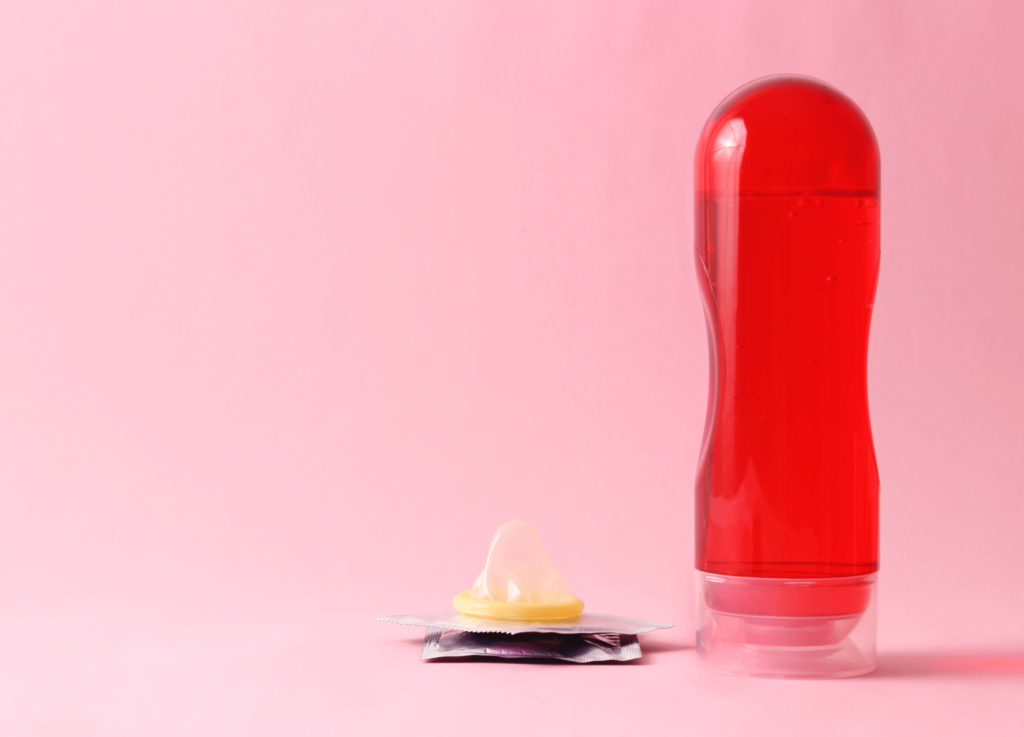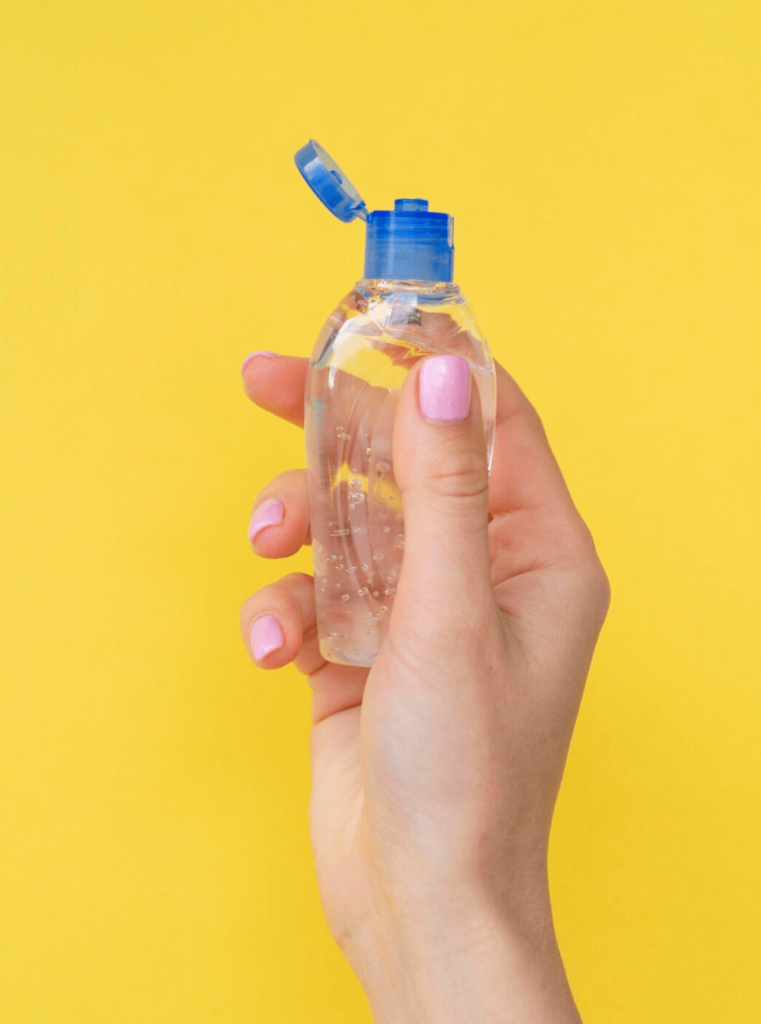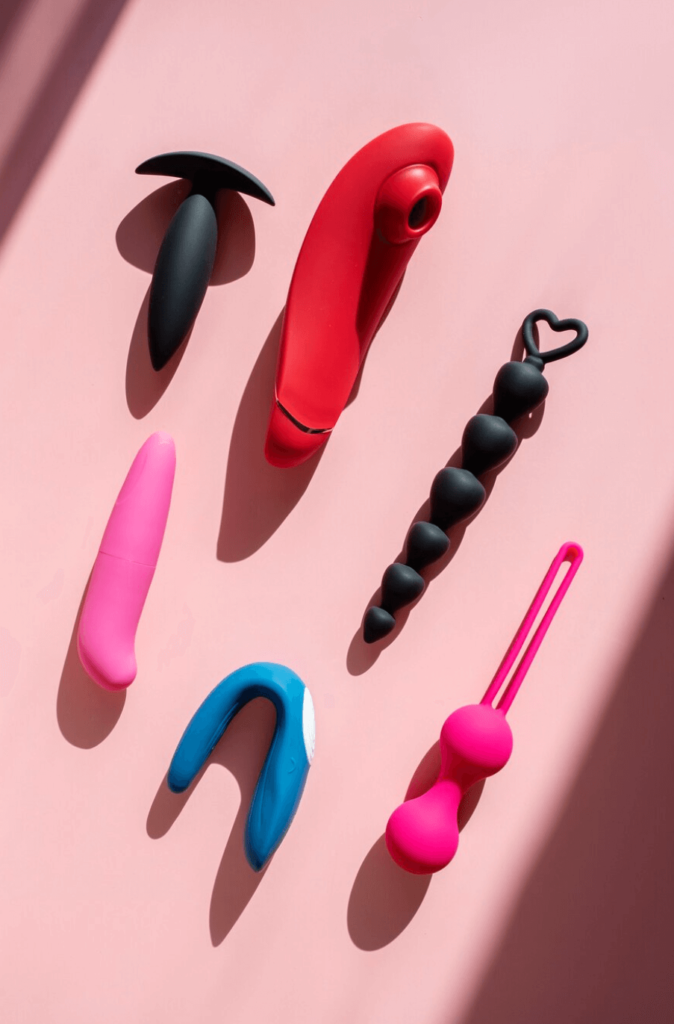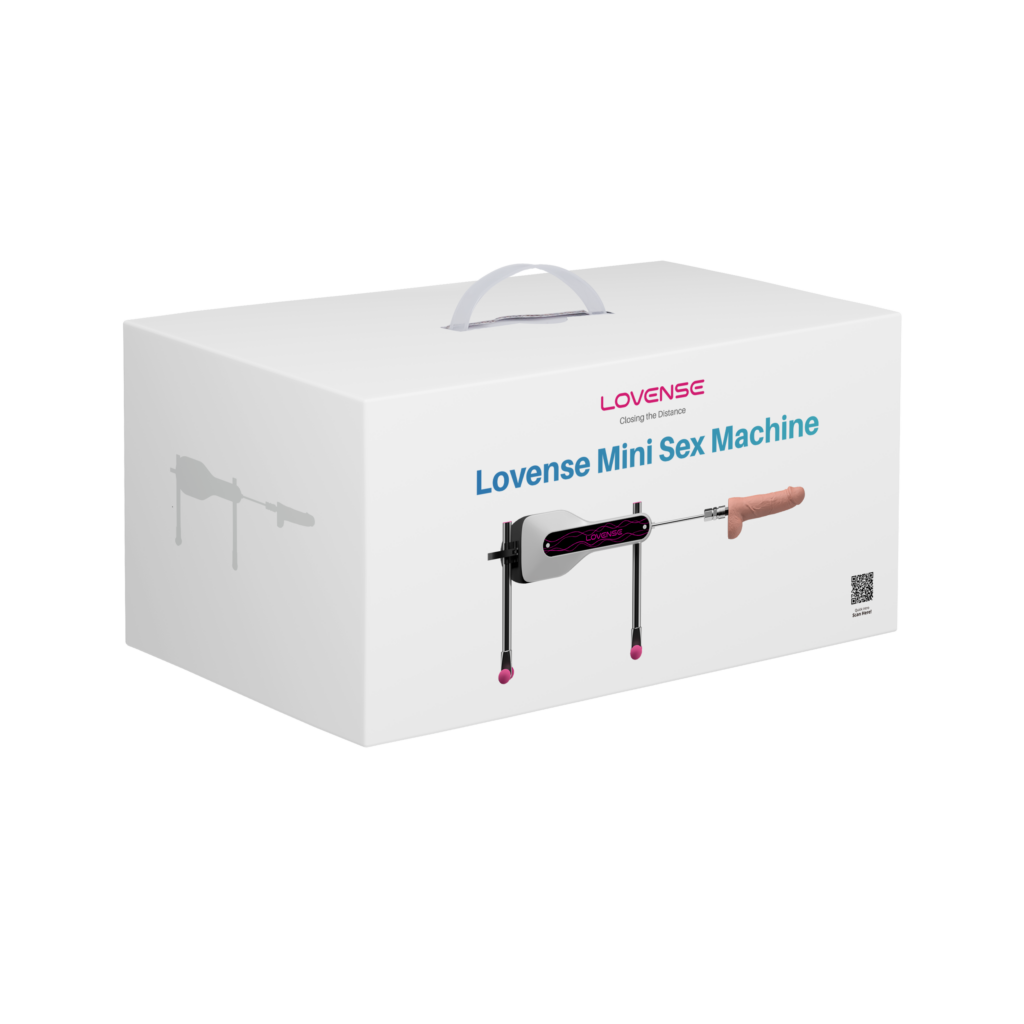Can i use silicone lubricant on silicone sex toys?
The Basics
In today’s world, discussions around intimate products are no longer taboo. In fact, silicone-based sex toys have seen a surge in popularity. But the real question is, how do we ensure safe and pleasurable experiences? Can you use silicone lubricant on silicone sex toys? Let’s decode the basics.
- What are Silicone Lubricants?
Silicone lubricants are known for their silky feel and long-lasting properties. Unlike water-based lubricants, they don’t dry out quickly, providing prolonged pleasure. However, their compatibility with various materials, especially silicone, has been a hot topic of debate. - The Popularity of Silicone Sex Toys
Silicone sex toys have garnered immense popularity, and for good reasons! They are non-porous, hypoallergenic, and incredibly soft to touch. But are they compatible with every lubricant out there?
Remember, the kind of lubricant you choose can profoundly affect your experience, so it’s essential to make an informed decision.
The Science Behind Silicone Interactions
Venturing into the world of silicone and its interactions can be like diving deep into a chemistry lesson. But fear not! We’re here to simplify it for you. Think of silicone materials as the friendly neighbors who generally get along but occasionally have a fence dispute.
- The Chemistry of Silicone Materials
Silicone, in its essence, is a synthetic compound made up of silicon, carbon, hydrogen, and oxygen. While it’s remarkably stable, certain chemicals can cause it to degrade.
Here’s a fun metaphor: Think of silicone like a well-baked cake; it’s stable and cohesive. Add the wrong ingredient (or lubricant), and it may just crumble.
- The Potential Risks
Introducing silicone lubricant to silicone toys can sometimes be like mixing oil with water. There are potential risks, including material breakdown and degradation.
Table: Silicone & Lubricants Compatibility
| Material Type | Water-based Lubricant | Silicone-based Lubricant | Hybrid Lubricant |
|---|---|---|---|
| Silicone Toys | Compatible | Varies | Compatible |
| Glass Toys | Compatible | Compatible | Compatible |
| Latex | Compatible | Not Recommended | Compatible |

Silicone Lubricants and Silicone Toys: A Deep Dive
By now, you might be wondering, “So, can we or can we not mix the two?” It’s a grey area, but we’re about to dive deep to uncover the mysteries.
- Why Some Lubricants Don’t Mix with Certain Toys
Just like how every key has its lock, not every lubricant is a fit for all toys. There are compatibility issues, often stemming from the toy’s material quality and the lubricant’s specific ingredients. - Real-life Incidents and Stories
We’ve all heard those horror stories where a favorite toy gets ruined after one passionate night. Here, we’ll share tales from real individuals who learned the hard way.
It’s said that experience is the best teacher. But when it comes to ensuring safety and pleasure, it’s best to learn from others’ experiences.

Factors to Consider Before Choosing Your Lubricant
Diving deeper into the world of intimacy, understanding the nuance is crucial. Various factors can influence your choice of lubricant when considering silicone toys.
- Duration of Use
While silicone lubricants last longer, they might not be the best choice if you’re planning on using your toy for extended periods. Remember, silicone can sometimes degrade silicone. - Sensitivity Concerns
Some individuals might find themselves more sensitive to certain lubricants. Always consider personal allergies or irritations. When in doubt, opt for hypoallergenic options. - Ease of Cleanup
Silicone lubricants, while providing a smooth experience, can be a tad challenging to clean. If you’re looking for an easy post-session cleanup, you might want to reconsider your options.
Did you know? Silicone lubricants are waterproof. This means they’re great for fun in the shower, but you might need a bit more effort in cleaning them up afterward.
Expert Recommendations & Reviews
Navigating the terrain of intimate products can be overwhelming. Let’s ease the process by diving into expert insights and user reviews.
- Top 5 Lubricants for Silicone Toys
While many lubricants are available in the market, only a select few come highly recommended for silicone toys. Here’s a concise list, backed by experts and user reviews.- Water-Based Delight
- Silky Hybrid Pleasure
- Natural Glide Organics
- Pure Aqueous Adventure
- Hypoallergenic Wonder
Pro tip: Always conduct a patch test on a smaller portion of the toy before fully immersing it in a new lubricant.
- Real User Experiences
Jane, a long-term silicone toy enthusiast, shares, “I once made the mistake of using a pure silicone lubricant with my favorite toy. The texture changed, and it wasn’t the same again. Always double-check compatibility!”
Safety First: Proper Maintenance of Silicone Toys
Beyond the immediate pleasure, ensuring your toys are well-maintained and safe for use is paramount. Let’s embark on the journey of proper silicone toy care.
- Cleaning Protocols
Silicone toys should be cleaned before and after every use. Opt for mild, unscented soap and ensure thorough rinsing. For toys with electronic components, always check the manufacturer’s guidelines. - Storage Solutions
Avoid storing silicone toys together. They should be kept in individual pouches or containers, away from direct sunlight or extreme temperatures.
Remember, the longevity of your silicone toys is directly linked to how well you care for them. Regular maintenance ensures both safety and pleasure.

Comparative Analysis: Silicone vs. Water-Based Lubricants
When choosing a lubricant, it’s essential to understand the major differences between silicone and water-based options. Let’s dissect the key distinctions.
Advantages of Silicone Lubricants:
- Long-lasting: Silicone lubricants provide a longer, uninterrupted glide compared to their water-based counterparts.
- Waterproof Nature: Perfect for adventures in the bathtub or shower.
- Fewer Additives: Often, silicone lubricants have fewer ingredients, reducing potential allergens.
Benefits of Water-Based Lubricants:
- Toy Compatibility: Generally safe to use with all types of toys.
- Easy Cleanup: Simply rinse away with water without any fuss.
- Versatility: Suitable for a wide range of intimate activities and often less likely to stain.
Note: It’s always crucial to read the ingredients and any **warnings** on lubricant bottles to ensure safety and compatibility.
Silicone Degradation
A significant concern with silicone on silicone is the potential for degradation. But what does this mean?
- Texture Alteration: Over time, when silicone-based lubricants are used with silicone toys, you might notice a change in the toy’s texture, becoming sticky or uneven.
- Chemical Breakdown: The interaction between the silicone materials can sometimes lead to a breakdown, reducing the longevity and quality of the toy.
Table: Signs of Silicone Toy Degradation
| Signs | Implications | Remedial Actions |
|---|---|---|
| Altered texture | Toy is degrading | Discontinue use |
| Discoloration | Possible chemical mix | Clean thoroughly/check compatibility |
| Unusual odor | Material breakdown | Consider replacement |
Always prioritize the **integrity and safety** of your intimate products. If you observe any unusual changes, it’s wise to reconsider its usage.
Final Thoughts: Making Informed Decisions
With a plethora of options available, making the right choice can feel daunting. Here are some parting words of wisdom:
- Prioritize Safety: Always ensure that your intimate products are free from harmful chemicals and are certified safe for use.
- Stay Informed: The world of intimate wellness is ever-evolving. Stay updated with the latest research and findings.
- Trust Your Instincts: While advice and guidelines are essential, always trust your body and its signals.
Remember, intimacy and pleasure are deeply personal. Every individual’s journey is unique, and it’s essential to find what works best for you, ensuring safety and satisfaction in tandem.

Why Silicone Lubricants and Silicone Toys Might Not Mix
Delving deeper into the science, we need to understand why some silicone-based lubricants can potentially degrade silicone toys.
The Science Behind Silicone Interactions:
Silicone, being a synthetic compound, has various formulations. When two differing silicones meet, such as those in toys and lubricants, there can be:
- Vulcanization Interruption: Silicone toys undergo a curing process called vulcanization. Introducing a different silicone formula can disrupt this, leading to degradation.
- Uneven Absorption: Some silicone formulas might be absorbed differently, causing swelling or morphing of the toy’s surface.
It’s akin to mixing two different types of paints. Even though both are paints, their **chemical compositions** might differ, leading to unexpected reactions.

Prevention and Testing Methods
It’s always better to be safe than sorry. Before you pair a silicone lubricant with a silicone toy, consider the following:
Patch Test:
Apply a small amount of the silicone lubricant on the base or a less noticeable part of the toy. Leave it for a few hours and check for any reactions like stickiness, swelling, or color changes.
Research & Reviews:
Some brands might specify if their silicone lubricants are safe for use with silicone toys. Look out for such labels, and also consider reviews from other users who might have tried and tested the combination.
Opt for Hybrid Lubricants:
Hybrid lubricants, a blend of water and silicone, might be a safer bet as they offer the slickness of silicone while being less reactive with silicone toys.
Table: Lubricant Compatibility with Toys
| Material of Toy | Safe Lubricants | Unsafe Lubricants |
|---|---|---|
| Silicone | Water-based, Hybrid | Some Silicone-based |
| Glass | Any type | None |
| Metal | Any type | None |
The Broader Picture: Overall Toy Care
Beyond the lubricants, it’s vital to maintain and care for your intimate toys. Here’s a broader look:
- Regular Cleaning: Ensure you clean your toys after every use with appropriate toy cleaners or mild soap and water.
- Storage: Store your toys in individual pouches or boxes to prevent them from touching and reacting with each other.
- Battery Care: If your toy is electronic, ensure you remove the batteries when not in use, and be cautious of water exposure.
Understanding Silicone: Beyond the Bedroom
Taking a detour from intimate wellness, it’s crucial to comprehend why silicone is a choice material for numerous applications.
The Ubiquity of Silicone in Daily Life:
Silicone, due to its durability and flexibility, finds itself in various products – from kitchenware to medical devices. But why?
- Non-reactivity: Silicone tends not to react with other chemicals.
- Heat Resistance: It can withstand both high and low temperatures, making it ideal for diverse environments.
Imagine a baking spatula made of silicone. It’s the silicone’s unique properties that allow it to move smoothly through batter, endure the oven’s heat, and yet remain cool to touch after. It’s versatile!
Environmental Concerns & Sustainability
While silicone offers numerous benefits, it’s essential to also consider its environmental footprint.
Biodegradability Issues:
Unlike natural rubber, silicone doesn’t degrade quickly. This can pose waste management challenges.
Recycling Initiatives:
Fortunately, with evolving technology, specific facilities can now recycle silicone, turning them into oils or other usable products. Like with every material, **responsible usage** and disposal of silicone products are the keys to ensuring a sustainable environment.
Table: Silicone vs. Natural Rubber
| Criteria | Silicone | Natural Rubber |
|---|---|---|
| Biodegradability | Low | High |
| Durability | High | Moderate |
| Temperature Tolerance | High | Low |

Concluding Thoughts & Expert Recommendations
Venturing into the realm of intimate toys can be both exhilarating and daunting. Armed with the right knowledge, you can make informed decisions. Here’s what we’d recommend:
- Always conduct a patch test when using a new lubricant.
- Prioritize your safety and well-being above all else.
- Stay updated with new research and findings. The world of intimate wellness is ever-evolving, and staying informed ensures a safe and pleasurable journey.
Remember, the world of intimate toys is vast and diverse. By being informed and cautious, you ensure a journey filled with discovery and delight. Always prioritize your well-being, and don’t be afraid to ask questions. After all, knowledge is the real power!


